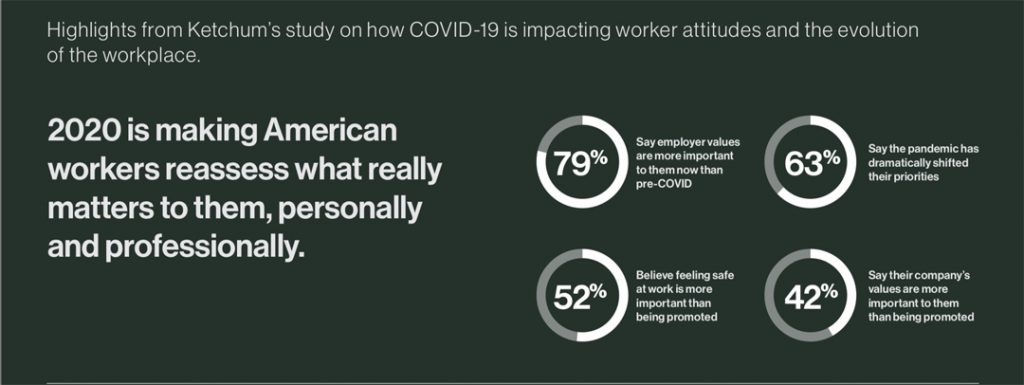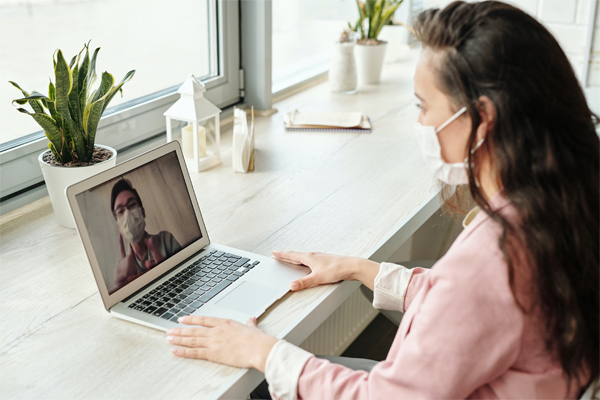The COVID-19 pandemic has caused nearly two-thirds of American workers (63%) to dramatically reevaluate their professional priorities, according to a new study carried out by Ketchum. Compared to just a few months ago, employees now prioritise matters such as personal health, workplace wellbeing/safety and diversity and inclusion values, over traditional benchmarks like salary and career advancement, confirmed the global communications consultancy.
Ketchum’s study, entitled Work Shift 2020: How Crisis Culture is Changing the Priorities of the American Workforce, shows that more than half of American workers today (52%) believe that feeling safe at work is more important than being promoted, with around one-third (33%) saying it’s more important than either salary or career advancement.
D&I VALUES RISE IN IMPORTANCE
According to the report, company values continue to rise in prominence. Around 79% of American workers say an employer’s values are more important to them now than pre-COVID, with three-quarters (74%) saying that their company’s diversity and inclusion values are more important now than they were before the pandemic. Additionally, nearly half of American workers (42%) say their company’s values are more important to them than being promoted. Approximately one-quarter US staff (25%) believe their employer’s values are more important than their own career development. Nearly half (42%) report that having the ability to work flexible hours is now more important to them than receiving a promotion.

REVALUATING PRIORITIES
“Our study shows value shifts across the spectrum as Americans adapt to a coronavirus landscape and crisis culture, and it’s especially interesting how Americans are reevaluating the very concept of employment,” stated Tamara Norman, Partner and Managing Director of Ketchum’s Employee Communications & Engagement specialty. “More than ever, employees are a company’s No. 1 stakeholder and their most influential ambassador. If employers can redefine their reengagement strategies more precisely for diverse employee needs, it can be a powerful tool for advancing the future of the workplace.”
Ketchum’s study indicates employees are fairly evenly split on their comfort level in going to their workplaces (with 55% feeling “comfortable” about returning and 45% still “uncomfortable”). In terms of work engagement levels since the lockdowns began, 50% are more engaged, and 50% are less engaged. In addition, 58% say they are more likely to request to work remotely more often as a result of COVID-19.
NEW WORK VALUES
The survey also explores topics related to employment in the COVID-19 economy. Around 70% of employees say they are torn between the desire to progress in their careers and feeling grateful to have a job, suggesting feelings of guilt given the sharp increase in unemployment rates. Office workers are more than twice as likely to be working fully remotely as a result of COVID-19 (57%) compared to non-office workers (27%).
According to the research, the pandemic has also caused office workers to reassess what they value at work, as they are significantly more likely than non-office workers value sick and vacation time benefits as “more important” (89% for office workers versus 76% for non-office workers) as a result of the pandemic. The majority also value flexible hours “more important” (86% for office workers versus 80% for non-office workers).
Click here for more information about the survey.







































